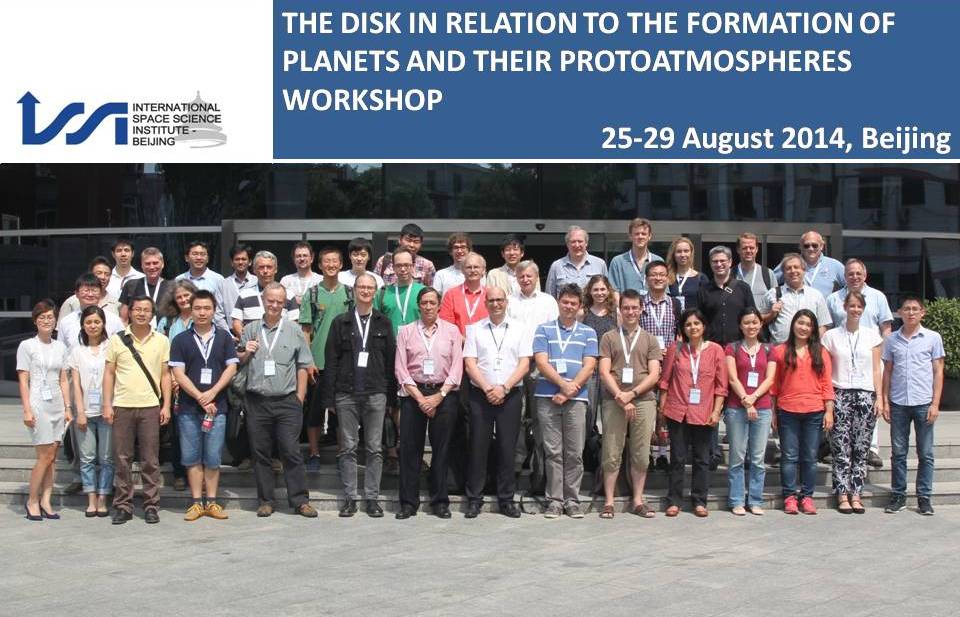The Disk in Relation to The Formation of Planets And Their Protoatmospheres Workshop
ISSI-Beijing successfully held its first workshop in cooperation with ISSI on August 25-29, 2014. The workshop focused on the topic of “The Disk in Relation to the Formation of Planets and their Protoatmospheres” and brought 45 highly respected Space Science experts from all over the world to Beijing.
Preceding the workshop, a forum on “The Science of Exoplanets and Their Systems” had been organized by ISSI in Bern at the end of 2012, with the participation of about 25 of the leading experts in the field. The forum had discussed in detail what the avenues for new progress in our understanding of exoplanets are, their distribution, their formation and their characteristics. One of the planned outcomes of the forum was the identification of “The Disk in Relation to the Formation of Planets and their Protoatmospheres” as a key subject for a future workshop. Indeed, the interrelationship between circumstellar disks, their evolution and their relation to forming planets and their protoatmospheres remains poorly understood despite an increasing body of modeling and observational data. Therefore, ISSI-BJ and ISSI jointly organized this workshop in August to address this matter in depth covering the different aspects of the issue.

The workshop was divided into six main sessions, focusing on the following topics: “on the formation of the planets in protostellar disks”,” from the disk to the planetary system”, “Disk Dispersal”, “Atmosphere formation and evaluation”, “debris Disk” and “The Way forward”. All available scenarios for the joint evolution of disks, planets and atmospheres in the light of the most recent observations and of available models were revisited. The lively debates contributed to a very successful workshop where the participants critically yet constructively discussed the status quo of the research on the formation of planets and tried to give a future outlook on where future missions, new instrumentation and observing methodologies, new analysis techniques and the development of theory might lead us to.
Under its special program for supporting young scientists, ISSI-BJ invited six early career scientists, within two years of their PhD, to take a full part in the Workshop. The young scientist session on Thursday afternoon opened new perspectives and was highly appreciated by all participants.
Following the Workshop, its output will be published as a volume in the Space Science Series of ISSI/ISSI-BJ by Springer, in parallel with the publication of the papers in Space Science Reviews.